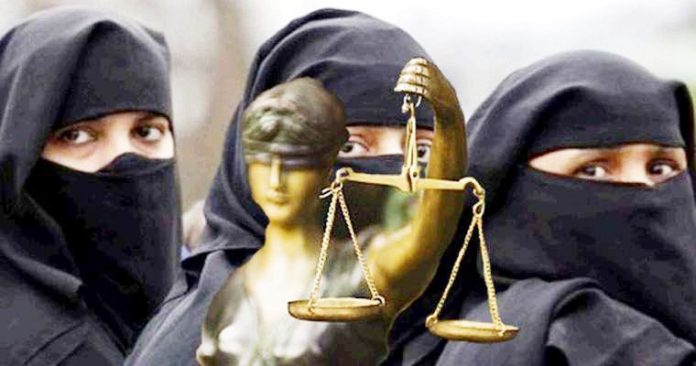The Narendra Modi government is likely to introduce a legislation to ban instant triple talaq, also known as talaq-e-biddat, in the upcoming winter session of Parliament, following the recent Supreme Court of India ruling that declared the practice unlawful.
According to government sources, a ministerial panel has been set up, and soon either a new law will be introduced or an existing one will be amended to ban instant triple talaq and punish those guilty of it.
Under Talaq-e-biddat, Muslim men can divorce their wives by uttering the word ‘talaq (divorce)’ thrice at one go verbally or even through email, letters or WhatsApp messages.
In August, the Supreme Court deemed the practice as unconstitutional, a verdict that has been called a watershed moment for gender equality in India.
Practice Continuing Despite SC Order
However despite the SC order, several complaints of instant triple talaq continue to be received from Muslim women.
Government sources say that even the police are helpless in taking action pointing out that nothing could be done as there were no “punitive provisions” in the law currently. The government’s proposal to introduce a new legislation could tackle this loophole.
The sources also added that this step by the government could help deter Muslim men from divorcing their wives using this custom. The current instances could be due to a lack of awareness of the SC decision and also due to the absence of any legal penalty.
Muslims Should Be Consulted
Muslims organisations have reacted cautiously to the news of the government’s proposal.
Maulana Khalid Rasheed Farangi Mahli of the All India Muslim Personal Law Board (AIMPLB), urged the government to consult all stakeholders before introducing a legislation. He acknowledged that the government’s decision was in line with the apex court’s verdict.
However, Siddiqullah Chowdhury, minister in charge of library and mass education in the West Bengal government, stated that “quashing” Muslim law using a legal route was wrong.
Chowdhury, who is also the president of the Bengal arm of Jamiat Ulema-e-Hind, an organisation operating the largest number of madarsas in the state said that while the government can introduce a Bill on the basis of the Supreme Court judgement, rules related to talaq come within the purview of the Muslim personal law and eliminating the practice via a new legislation would be “tantamount to interfering with fundamental rights.”
Mohammad Kamruzzaman, general secretary of the All Bengal Minority Youth Federation, also urged the government to consult Muslims, adding that government interference in such matters was “not desirable.”
However Shaista Amber, President, All India Muslim Women Personal Law Board, hailed the government’s decision, expressing her happiness at the government keeping its promise “of making a law within six months of the SC verdict.”
Opposition party Congress has said that it will support any measures protecting the status of Muslim women but added that it would want to see the bill first.
Congress leader Sushmita Dev noted that while the party can’t comment on the issue without seeing the bill, it will “support and stand by any progressive step” to protect the status of a Muslim woman. Dev however added she was sceptical as “there is a difference in what they (government) say and what they do.”
BJP Criticised for Politicising the Issue
The Supreme Court order against the triple talaq practice came after several petitions were filed by Muslim women affected by it.
The issue had become a major point of debate ahead of the Uttar Pradesh assembly elections earlier this year, with the BJP calling it an issue of gender justice.
Prime Minister Narendra Modi stated that the practice of triple talaq should no longer be allowed to ruin the lives of Muslim women.
Although the party was criticised for politicising the issue, the BJP re-iterated its commitment to gender justice. The party claimed after its victory in the elections that a section of Muslim women had supported the party for its position on triple talaq.
The decision to introduce a legislation on instant triple talaq is also likely to have an impact on the Gujarat state elections scheduled for next month.
The custom of talaq-e-biddat is currently banned in 22 Muslim-majority countries, including conservative states like Pakistan and Saudi Arabia.





